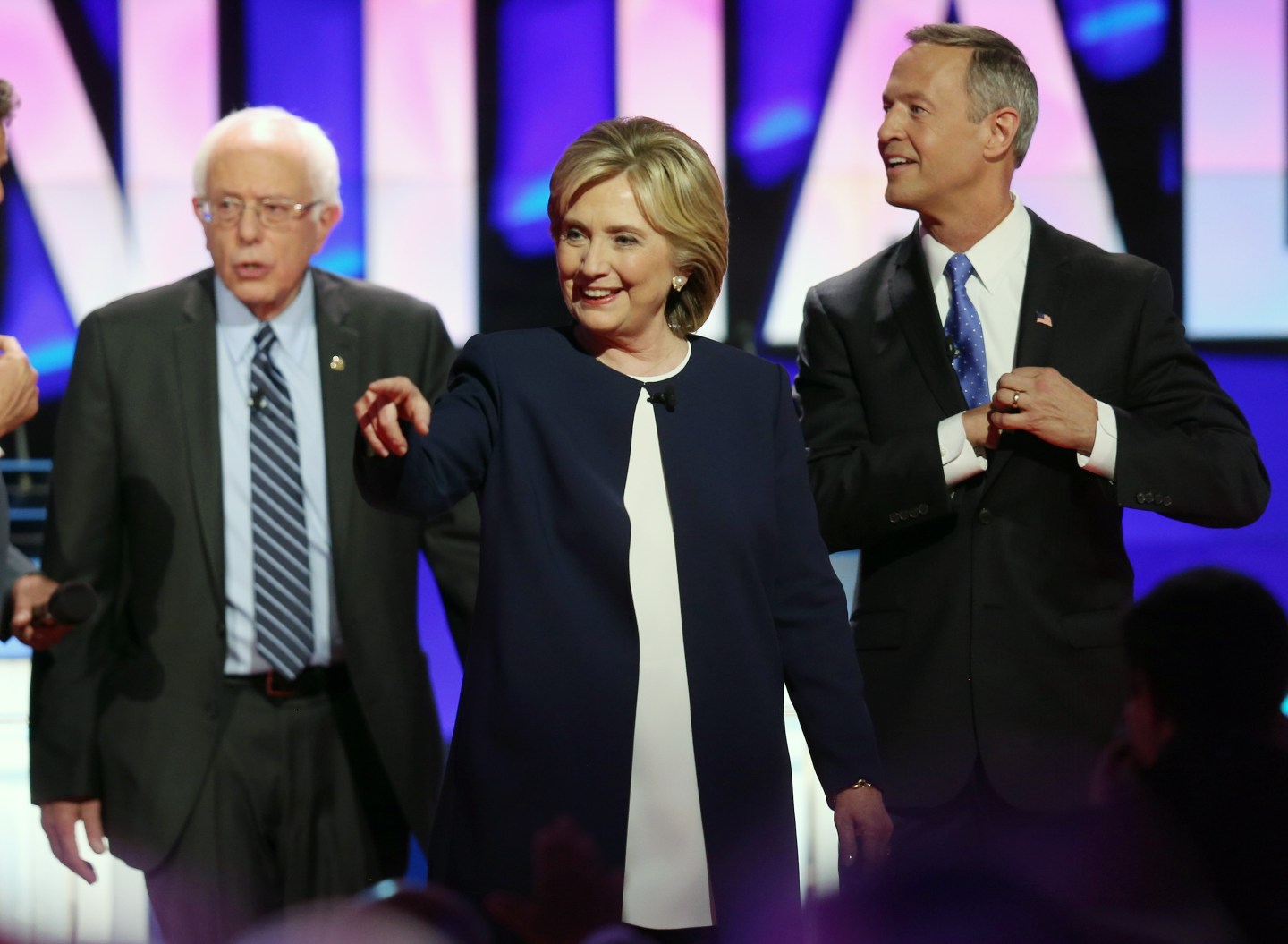When Hillary Clinton and Bernie Sanders met for their first debate, the Vermont Senator told Clinton that he was “sick and tired of hearing about your damned e-mails.” When the pair meets again on Saturday night, it might be Sanders’ use of technology on trial.
Clinton, Sanders and former Maryland Gov. Martin O’Malley are set to share a stage at Saint Anselm College near Manchester, N.H., for the final Democratic debate of 2015. Looming over the meeting will be the breach by the Sanders campaign of proprietary data collected by the Clinton campaign.
For years, Democrats have built a database loaded with troves of voter information, from basics such as voting histories to more obscure consumer patterns such as magazine subscriptions and Amazon purchase histories. Campaigns generally have access to the basics and then add their own data, which they alone can see. The candidates use the rich data to identify likely supporters and contact them through mail, at their doors and on the phones.
The data is among the most valuable assets to any campaign, yet Sanders aides found a flaw in the system that allowed them to see information Clinton operatives entered about potential supporters in at least 10 states.
That set of a flurry of activity that captured the imagination of activists and left most voters blurry-eyed. Sanders fired his data chief and blamed the data vendor. The Democratic National Committee suspended Sanders’ access to the data files. Sanders campaign manager said the DNC is holding the information hostage and hobbling he campaign. The DNC responded that it is merely trying to protect its data. Sanders threatened a lawsuit.
It’s not clear if the imbroglio will fade—or if it’s in Sanders’ interest to have it go away. Sanders found initial success for his populist, us-versus-them message. He rose in the polls through the summer, but his numbers have been fading. If he can return to that message—that the system is rigged against him and his supporters—he could find himself on the upswing just six weeks before Iowa has its lead-off caucuses on Feb. 1.
Indeed, the data incident set off sniping between Sanders’ progressive fans and Clinton’s Establishment-minded supporters over the declared neutrality of the DNC. Even the debate schedule was yet more evidence for the DNC’s critics that it was trying to minimize the risk for Clinton; with few likely viewers on the Saturday night before Christmas, any Sanders score would not be widely seen.
Regardless of the specifics, the detour into intra-party squabbling only serves to help Clinton. She has been building an impressive campaign from coast to coast, has near-unanimous support among the Democratic Establishment and has a fundraising advantage over her two rivals. Her campaign headquarters in Brooklyn is so brimming with aides that some now sit on the floor with their laptops to work. Sanders, by contrast, has his army of volunteers and low-dollar donors. And, at least for a while, Sanders also had Clinton’s data.
This article was originally published on Time.com.












